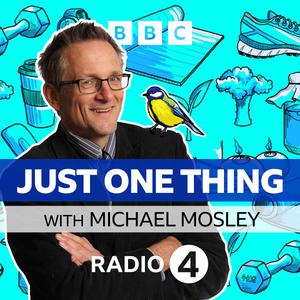
Just One Thing - with Michael Mosley
BBC Radio 4
If time is tight, what's the one thing that you should be doing to improve your health and wellbeing? Michael Mosley reveals surprisingly simple top tips that are scientifically proven to change your life.
- 14 minutes 23 secondsTry Flax Seeds
Michael Mosley gets his flax fix, as he finds out how flax seeds, also known as linseeds, can protect your heart, reduce your blood sugar levels, and might even keep your skin feeling smooth and hydrated! With the help of Dr Grant Pierce from the University of Manitoba in Canada, Michael learns about the key components of flaxseed, including alpha-linolenic acid, and how they contribute to its array of impressive benefits. Through his research, Grant has demonstrated that daily flaxseed can lower your blood pressure and cholesterol, reducing your chance of a heart attack or stroke by a remarkable 50%! Meanwhile, our volunteer Rena finds flaxseed a welcome addition to her diet. Series Producer: Nija Dalal-Small Editor: Zoë Heron A BBC Studios production for BBC Sounds / BBC Radio 4.
25 April 2024, 8:45 am - 15 minutes 5 secondsPlay an Instrument
Humans have been making music for thousands of years, but for Michael Mosley and our volunteer Matthew, the musical journey is only just beginning. Playing a musical instrument has been shown to strengthen your memory and lift your mood. It can even reduce chronic inflammation. Dr Sofia Seinfeld from the Open University in Catalonia tells Michael why it’s never too late to start making music, and how it can enhance your cognitive abilities by activating regions of the brain associated with motor co-ordination and the processing of emotions. Meanwhile, Matthew gets to grips with the ukulele to see if he can master a tune and boost his wellbeing. Series Producer: Nija Dalal-Small Editor: Zoë Heron A BBC Studios production for BBC Sounds / BBC Radio 4.
18 April 2024, 8:45 am - 14 minutes 36 secondsEnjoy Olive Oil
Michael Mosley discovers that enjoying more olive oil in your daily diet can come with a whole host of surprising benefits, including protecting your brain, improving your memory and reducing chronic inflammation. The Mediterranean diet has been shown to be one of the healthiest in the world, and a major component of this is olive oil. Dr Bill Mullen from the University of Glasgow tells Michael about his recent research, which found that two tablespoons of olive oil a day can significantly reduce biological markers of heart disease. Meanwhile our volunteer Ellen, an avid home cook, reaps the benefits of switching to olive oil. Series Producer: Nija Dalal-Small Editor: Zoë Heron A BBC Studios production for BBC Sounds / BBC Radio 4.
11 April 2024, 8:45 am - 15 minutes 7 secondsGet Fit with HIIT
There’s no question that exercise is important for our health, but many of us find it difficult to fit into our busy schedules. In this episode, Michael Mosley explores how high-intensity interval training, HIIT for short, might be the most time-efficient way to get fitter. It can also boost your cognitive performance, help you live longer, and improve your quality of life. Martin Gibala, Professor of Kinesiology at McMaster University in Ontario, reveals all about the beneficial impact of HIIT on your cardiorespiratory system, your ability to control your blood sugar levels, and your risk of chronic diseases. Meanwhile, busy mum and NHS worker Suzanne finds HIIT a great way to incorporate a workout into her hectic routine.
Series Producer: Nija Dalal-Small Editor: Zoë Heron A BBC Studios production for BBC Sounds / BBC Radio 4.
4 April 2024, 8:45 am - 14 minutes 21 secondsGet Gardening
Michael dons some gardening gloves and gets grubby. It’s no surprise that digging, hoeing and heaving bags of soil around is great for our physical fitness. But Michael learns how gardening can also impact our microbiome from Dr Hannah Holscher at the University of Illinois Urbana-Champaign. She explores how gardening can boost the gut microbiome, benefitting our health and wellness. Our volunteer Caspar, tests his green fingers by growing some kitchen herbs and visiting a community garden.
Series Producer: Nija Dalal-Small Science Producer: Catherine Wyler Researcher: Sophie Richardson Researcher: Will Hornbrook Production Manager: Maria Simons Editor: Zoe Heron A BBC Studios production for BBC Sounds / BBC Radio 4.
13 March 2024, 9:30 am - 14 minutes 31 secondsGet Skipping
It’s time to dig out that skipping rope, as Michael learns that the popular childhood pastime could have big benefits for health and wellbeing, especially as we get older. Professor Urs Granacher from the University of Freiburg, shares how skipping is a form of jumping exercise, which could help increase not just our speed, but could also help us age healthily. These exercises help increase muscle power and can also strengthen our bones. Our volunteer Shona, a new mum based in Shetland, uses skipping as an excuse to get outside.
Series Producer: Nija Dalal-Small Science Producer: Catherine Wyler Researcher: Sophie Richardson Researcher: Will Hornbrook Production Manager: Maria Simons Editor: Zoe Heron A BBC Studios production for BBC Sounds / BBC Radio 4.
6 March 2024, 9:30 am - 14 minutes 28 secondsSnack Smartly
We are a nation of snackers and we tend to get a whopping 25% of our daily calories from our snacks. But surprisingly, snacking isn’t necessarily bad for our health. Dr Sarah Berry at Kings College London explores a pragmatic approach to snacking, and tells Michael how what you snack on and when you snack has the greatest impact on your health. You don’t have to stop snacking - just snack smartly by swapping in some less-processed options. Our volunteer Denise, a hotel facilities manager from Liverpool, tries to reap the benefits of better snacks.
Series Producer: Nija Dalal-Small Science Producer: Catherine Wyler Researcher: Sophie Richardson Researcher: Will Hornbrook Production Manager: Maria Simons Editor: Zoe Heron A BBC Studios production for BBC Sounds / BBC Radio 4.
28 February 2024, 9:30 am - 14 minutes 33 secondsTrack Your Exercise
Tracking your exercise is a simple and surprisingly effective way to motivate you to move more. Most of us own an exercise tracker, whether it’s the fitness app on our phone or a special bit of kit on our wrist. But how do they make us more active? Professor Carol Maher, from the University of Southern Australia, has found wearing an activity tracker really can encourage more physical activity. She tells Michael how the instant feedback allows people to take control of their activity levels. Michael learns the extra movement a tracker encourages can really help improve your brain power and reduce your risk of certain cancers and type 2 diabetes. Volunteer Rumbi opens her fitness app and steps out to see if it really works.
Series Producer: Nija Dalal-Small Science Producer: Catherine Wyler Researcher: Sophie Richardson Researcher: Will Hornbrook Production Manager: Maria Simons Editor: Zoe Heron A BBC Studios production for BBC Sounds / BBC Radio 4.
21 February 2024, 9:30 am - 13 minutes 55 secondsGet an Early Night
Michael discovers his long-time penchant for an early night could have some real health benefits. If you are someone who could go to sleep earlier and simply put it off with an extra episode or phone scrolling, Michael recommends going to bed an hour earlier than normal because getting enough sleep deeply impacts your brain, protecting against depression and other neurological problems. Professor Esra Tasali at the University of Chicago's Sleep Centre, shares her research that sleeping an extra hour a night has been found to have an incredible effect on our appetite, reducing cravings often linked to weight gain. Our volunteer Dylan, who is very health and exercise conscious, is surprised to find a little more sleep every night could benefit his fitness routine.
Series Producer: Nija Dalal-Small Science Producer: Catherine Wyler Researcher: Sophie Richardson Researcher: Will Hornbrook Production Manager: Maria Simons Editor: Zoe Heron A BBC Studios production for BBC Sounds / BBC Radio 4.
14 February 2024, 9:30 am - 14 minutes 39 secondsEat Whole Grains
Michael discovers incorporating wholegrains into our diet, is a tasty swap that could really benefit our health. Wholegrains such as wholegrain pasta, bread and brown rice contain more fibre, vitamins and minerals, than refined grains. This simple swap can help reduce blood pressure, improve heart health and boost the gut microbiome. Michael talks to Dr Caleigh Sawicki, from the Brigham and Women’s hospital and Harvard Medical School, whose research suggests that the fibre consumption of wholegrains can keep us fuller for longer and this slow digestion could result in a lower increase in blood sugar.
Series Producer: Nija Dalal-Small Science Producer: Catherine Wyler Researcher: Sophie Richardson Researcher: Will Hornbrook Production Manager: Maria Simons Editor: Zoe Heron A BBC Studios production for BBC Sounds / BBC Radio 4.
7 February 2024, 9:30 am - 14 minutes 32 secondsDo a Plank
Michael adds a plank into his exercise routine and is surprised to learn of its huge benefits to our physical health.
Dr Jamie O'Driscoll, a Reader of Cardiovascular Physiology at Canterbury Christ Church University, reveals how the plank is a form of isometric exercise, where muscles are held still, neither stretching nor contracting. Jamie shares his research that found these exercises, including the plank and the wall-squat, could massively reduce our blood pressure.
Michael also explores how the plank can even be better than crunches or sit ups for your abs and core muscles. Our volunteer Penelope takes on the plank, excited to learn that this small addition to her fitness regime could yield great results.
Series Producer: Nija Dalal-Small Science Producer: Catherine Wyler Researcher: Sophie Richardson Researcher: Will Hornbrook Production Manager: Maria Simons Editor: Zoe Heron A BBC Studios production for BBC Sounds / BBC Radio 4.
31 January 2024, 9:30 am - More Episodes? Get the App
Your feedback is valuable to us. Should you encounter any bugs, glitches, lack of functionality or other problems, please email us on [email protected] or join Moon.FM Telegram Group where you can talk directly to the dev team who are happy to answer any queries.
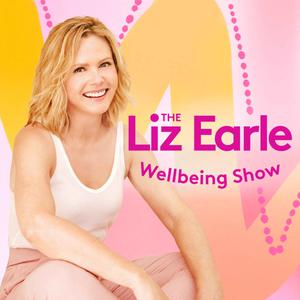 The Liz Earle Wellbeing Show
The Liz Earle Wellbeing Show
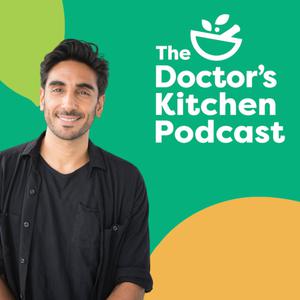 The Doctor's Kitchen Podcast
The Doctor's Kitchen Podcast
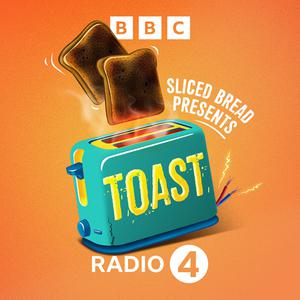 Sliced Bread
Sliced Bread
 ZOE Science & Nutrition
ZOE Science & Nutrition
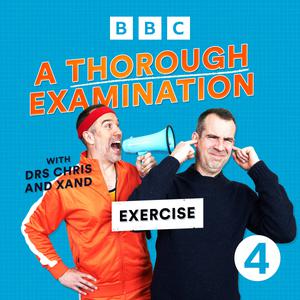 A Thorough Examination with Drs Chris and Xand
A Thorough Examination with Drs Chris and Xand
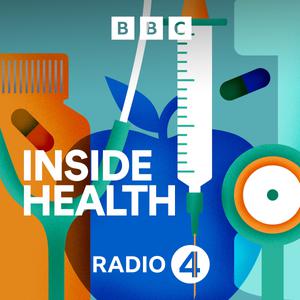 Inside Health
Inside Health